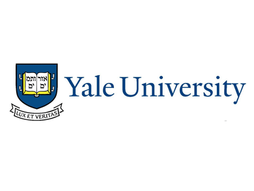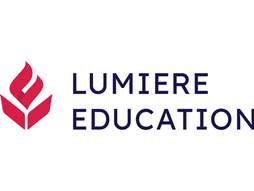8 Math Summer Camps for High School Students
If you’re a high school student looking to explore concepts in mathematics beyond your school curriculum, a summer camp is worth considering. Subject-specific summer camps offer the opportunity to dive into your field of choice while giving you a first-hand idea of what you may want to pursue in college, so you can make informed choices.
Finding and selecting a summer camp that suits your academic needs isn’t always easy. So, we’ve curated this list of summer math camps that you should check out, with advanced mathematics and its integration into real-world problems being the focus.
If you’re interested in a more academics-focused program in mathematics, check out this list! Competitions in math are also a great way to hone your skills and enhance your college applications. Take a look at this list of math competitions for high school students.
Location: The camp offers both residential (Stanford University campus, Stanford, CA) and remote options.
Eligibility: High school sophomores and juniors, including international students, are eligible to apply. The camp offers 2 courses, with specific prerequisites you should check before applying.
Application deadline: February 1, 2024
Camp dates: You can choose between two 3-week virtual programs or a 4-week residential program:
Residential: June 23, 2024 - July 19, 2024
Online Session 1: June 17, 2024 - July 5, 2024
Online Session 2: July 8, 2024 - July 26, 2024
Cost: $8,250 (residential) | $3,550 (virtual)
This prestigious math camp involves 3 to 4 weeks of intensive study in the field of advanced mathematics. The residential program combines in-class sessions that include problem-solving and live instruction, with a structured social routine – wherein you will work on assignments and participate in social activities with fellow campers. If you opt for the virtual camp, you are expected to put in 3–5 hours of academic work a day, in addition to attending online classes. Students will work on a research project in both the online and in-person camps, and present their work towards the end of the program.
The camp offers two courses to choose from—Program I: Abstract Algebra & Number Theory and Program II: Algebraic Topology. Program I is introduced with the help of five motivating problems: limitations of straight-edge and compass constructions, error-correcting codes, classification of patterns in two dimensions, cryptography, and the analysis of symmetry in structures. Program II covers ways of analyzing topological properties of shapes using algebraic concepts including the notion of group. Both courses have certain prerequisites that you should check here before applying, as SUMaC is a highly selective program, with only 40 selected each year for the in-person camp. The online session accepts 64 students each year.
Location: University of Minnesota, Twin Cities, Minneapolis, MN
Eligibility: All high school students who have completed a year-long course in single variable calculus are eligible to apply.
Application deadline: Applications typically close in early June.
Camp dates: The program will be held over 1 week in mid-July (tentatively, based on previous years).
Cost: Free
This 1-week camp focuses on the use of mathematical models to analyze and solve real-world problems. For instance, the sessions could focus on the role of math in predicting the trends in population and disease, gauging the impact of climate on resources, and understanding the effects of traffic on a bridge. In past sessions, students have worked on a project to analyze potential routes for a light rail system. This is an in-person camp, but housing is not provided. You will be expected to be on campus from 9 AM to 3.30 PM each day. Depending on the demand, the camp may offer a few applicants the option to participate in the sessions remotely.
Location: University of Puget Sound, Tacoma, WA. This is a residential program.
Eligibility: Students who are 13-18 years old can apply. International students are also eligible to apply!
Application deadline: March 6, 2024 (Applications open on January 10, 2024).
Camp dates: June 30, 2024 - August 4, 2024
Cost: Base cost $5,500, which covers tuition, room and board, extracurricular activities, and local transportation to and from Seattle-Tacoma International Airport. Financial aid is available. Free for students whose families have a household income under $100,000.
This 5-week program is designed for students who wish to explore concepts beyond the standard math curriculum, from theoretical subjects such as abstract algebra, topology, or real analysis, to applied mathematics, such as physics, linguistics, and quantum computation.
At Mathcamp, you will spend a few hours every day in classes and participate in activities in the evenings. So, you get a combination of live instruction in classes, problem-solving sessions and weekly competitions, and outside-of-class work where you can discuss math with peers and faculty. During this camp, you will work on projects, both independently and with fellow campers, and present your work at the end of camp. You can check out past projects here. Additionally, you can attend talks called Colloquia, which is scheduled periodically throughout the camp. These talks cover a wide range of topics like string theory, the mathematics of origami, and cognitive science.
A key factor that makes Mathcamp worth considering is that it is free for all US and Canadian applicants whose families have a household income under $100,000! You can learn more about financial aid here.
Location: Texas State University campus, San Marcos, TX. This is a residential program.
Eligibility: All high school students are eligible to apply.
Application deadline: April 15, 2024
Camp dates: June 16, 2024 - July 27, 2024
Cost: $6,000, which includes housing, meals, and other supplies. Need-based financial aid is available.
HSMC is a 6-week residential camp for ambitious high school students looking to build a career in mathematics. The camp courses cover the fundamentals of mathematics, such as elementary number theory, combinatorics, abstract algebra, and analysis along with practical problem-solving using Mathematica software. HSMC is a multi-summer program – it encourages high schoolers to apply as returning second-year or even third-year campers. This option is worth considering as returning campers get a chance to work on a math research project—an opportunity unavailable to new students. This camp is fairly selective, with an acceptance rate of 15% for first-year applicants. The program accepts 72 students each year, which includes approximately 40 returning students.
Location: Virtual.
Eligibility: All high school students above the age of 14 can apply.
Application deadline: No information is available on this at the moment. Registration opens on January 15, 2024.
Camp dates: June 10–14, 2024
Cost: There is no information available.
Offered by the Illinois Institute of Technology, this summer camp covers mathematical proof, number theory, counting, and probability in 2-hour online classes over 5 days. This camp covers a wide range of concepts with a focus on real-world applications of math, abstract reasoning, and the appropriate usage of mathematical notation and terminology in written and oral arguments. The camp will focus on emphasizing the role math plays in solving problems such as optimizing web searches or even taking a picture of a black hole in the center of the galaxy!
Location: MIT campus, Cambridge, MA
Eligibility: U.S. high school students aged 14–18 (before the last year of high school) can apply. Take a look at all the eligibility criteria before you apply.
Cost: Free
Application deadline: March 1, 2024
Camp dates: June 28, 2024 - July 12, 2024
This 14-day math camp offers a combination of classes, group activities, and lectures that will cover creative problem-solving, an introduction to mathematical proof and its techniques, and accessible ideas in mathematics, among other concepts in math. The campo instructors who will guide you are experienced in both competition and research math. The program encourages applicants who are underrepresented or under-served in the field of mathematics to apply.
Location: Duke University campus, Durham, NC. This is a residential program.
Eligibility: High school juniors who are U.S. citizens can apply.
Cost: Free
Application deadline: Applications typically close in March.
Camp dates: The camp is typically held over one week in mid-June.
The 1-week workshop covers two math courses, group presentations, and lectures offered by Duke professors. Last year, the courses Representation of a Number as a Sum of Powers and Squeezing Shapes (covering topology) were offered. You can expect courses along similar lines this year. Students underrepresented in the field of math are encouraged to apply. The 2024 workshop dates and details are yet to be announced, so you can check for updates on the SWiM website in January or February
Location: Ohio Northern University, Ada, OH
Eligibility: High school students who will enter their junior or senior year in Fall 2024 can apply.
Cost: $495
Application deadline: June 4, 2024
Camp dates: June 9–14, 2024
If you’re keen on exploring math along with other STEM subjects, then this camp can help you get started. Students can expect to work on multi-disciplinary projects, which would include the application of mathematical concepts, with university faculty. Along with face-to-face sessions on science, technology, and engineering, math topics like data science will be covered during this camp. The camp also offers a platform for you to interact with professionals in STEM fields, which can give you some solid insight into a career in STEM fields, as you participate in hands-on laboratory experiments. The camp selects only 24 students every year, and seats fill up quickly, so it’s best to apply as soon as you can!
Bonus
(Discover STEM and Discover Cryptography camps)
Location: University of Nebraska–Lincoln, Lincoln, NE
Eligibility: All high school students are eligible to apply.
Application deadline: May 20, 2024
Camp dates: June 9–14, 2024
Cost: Each camp’s fees range from $450 to $850.
Big Red Camps are career exploration camps designed to help high school students explore a field of interest or potential career—whether that’s fashion, animation, digital media, or math.
For students keen on math and STEM, these two Big Red camps are worth considering: Discover STEM and Discover Cryptography - AGAM. Discover STEM is an interdisciplinary camp, where you can expect hands-on learning experiences and opportunities to interact with industry professionals. Discover Cryptography is the University of Nebraska–Lincoln’s first All Girls/All Math initiative designed to encourage students from underrepresented backgrounds in STEM. It’s open to girls in high school only. Cryptography is one such field where you will understand the real-world applications of mathematical principles. So, the camp will dive into the mathematics behind RSA, an encryption scheme used to secure online transactions. A typical day at the camp will consist of mathematics sessions each morning, problem sessions with an instructor following each class, networking activities or panels each afternoon, and spare time for homework and other social activities in the evenings.
To learn more about the camp, check out the flier here.
A few more programs that you can consider:
One other option:
If you are interested in doing university-level research in mathematics, then you could also consider applying to the Lumiere Research Scholar Program, a selective online high school program for students founded with researchers at Harvard and Oxford. Last year, over 4000 students applied for 500 spots in the program! You can find the application form here.
Also check out the Lumiere Research Inclusion Foundation, a non-profit research program for talented, low-income students.
Stephen is one of the founders of Lumiere and a Harvard College graduate. He founded Lumiere as a PhD student at Harvard Business School. Lumiere is a selective research program where students work 1-1 with a research mentor to develop an independent research paper.
Image Source: MathCamp logo








